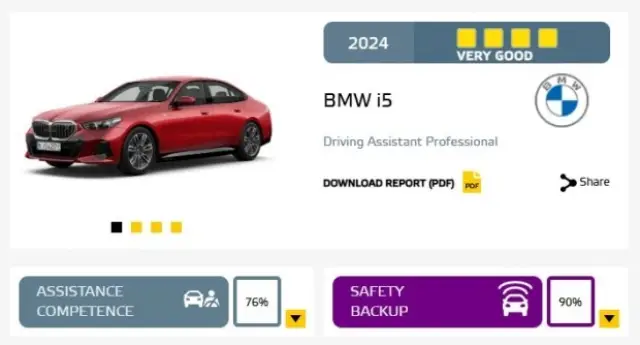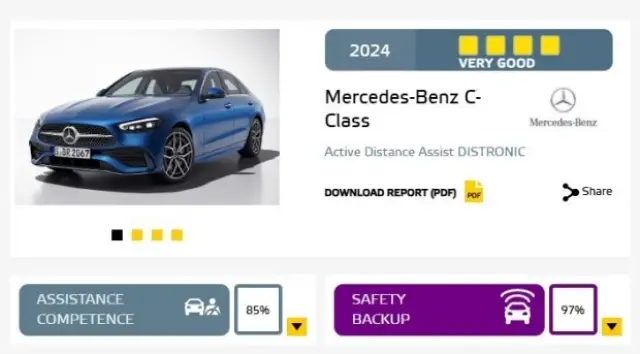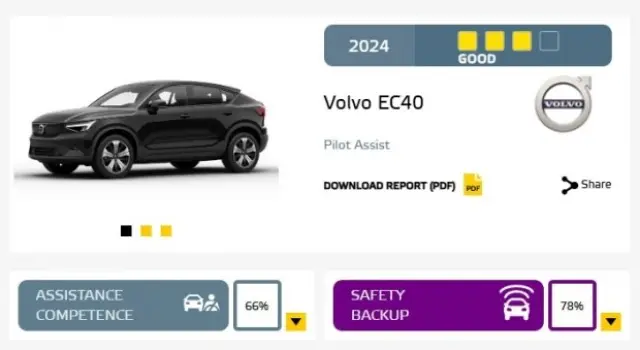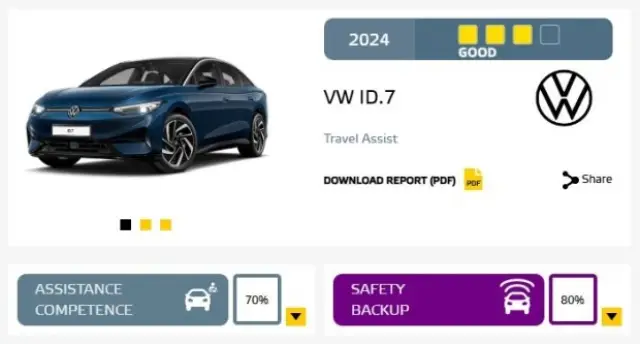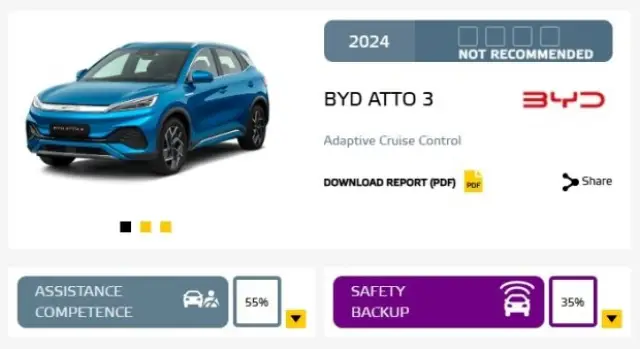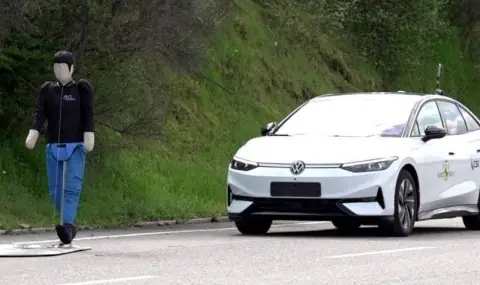Euro NCAP experts tested safety assistance systems in the new BMW i5 models, Mercedes-Benz C-Class, Volkswagen ID.7, Volvo EC40 and the Chinese bestseller BYD Atto 3. As it turned out, the test results differed dramatically.
For the first time, a check of driver assistance systems was introduced in 2020. The experts then began to evaluate their performance according to two main aspects: competence to help. The first is the balance between the level of assistance offered by the car and the degree to which the system helps the driver stay involved in the driving process, and the second - is called Safety Backup - measures taken in critical situations to avoid a collision.
However, this year the testing requirements have been revised and expanded with additional tests to improve speed control related to lane suitability, road characteristics and local hazards. In addition, fallback safety scenarios have been expanded to include avoiding motorcyclists, pedestrians, and bicyclists.
As a result of the inspection, it became clear that the BMW i5 and the Mercedes-Benz C-Class receive a perfect score. Their systems were rated as "very good". In the Safety Backup test, the Mercedes-Benz model received a particularly high score for the fact that the car moves to the side of the road and performs controlled braking if the driver does not react to the system's signals.
Meanwhile, the Volkswagen ID.7 and Volvo XC40 received an overall rating of “Good”, while the BYD Atto 3 system was deemed “not recommended” because the road sign recognition function interpreted them incorrectly, and in Safety Backup the car did not reach the minimum standards, in particular due to the general poor performance of the adaptive cruise control against stationary vehicles and the lack of action if the driver does not react, leaving the car without any reduction in speed.
